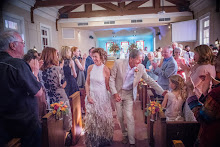Relationship. A ship that can take you just about as far as you want to go. Especially if you want to go inside and discover who you are. Sometimes even, the worse the relationship, the more quickly you can discover what you really need to learn about yourself.
And if things are wonderful, there’s still plenty to learn. What to do when the partner has a bad day. What to do when we have a bad day. How to be pleasantly content without falling into a rut. How to keep learning about each other, instead of assuming everything is known, which is to say, how to keep learning about ourselves. How to laugh at ourselves instead of quarrelling. How to learn what we need to learn next. Lots to learn. Love is about two vital beings, enjoying and learning from and exciting and pleasing each other in the moment. And then we get into our ruts, and how to get back out, and reconnect again?
Here’s my take on the essentials of good relationship. Three things to look for if you are building a relationship; three things to keep coming back to, if you are nourishing a relationship. Simple things, wonderful things, one, two, three: touch, truth, and fun.
Since I like to talk about movies and I like to talk about relationships (and ecology, and philosophy, but enough is enough), let’s talk about a fun recent movie as illustrative of these three pillars: touch, truth and fun.
The movie is Aviator. Did you see it? It’s still around and a great bargain as far as how much movie you get for your money. It’s long and it doesn’t feel that way. I could have gone another hour. The acting is brilliant, and the scope is epic, the dude was epic, dating Hollywood stars, flying the fastest plane on earth, taking over TWA, making movies. And tragic. Howard Hughes was a genius at what he was great at, and a tortured soul about germs on a water glass. What a combination. And it’s a great batch of history from the twenties to the forties.
In what is to m the sexiest scene in the film, the young Howard Hughes meets a beautiful cigarette woman at a hot shot night club. He tells her he’s like to know how to give her a lot of pleasure. This is a nice glob of truth: not bragging about what a big stud he is, how hot he is. He tell her, he wants to give her pleasure and he wants to learn.
He wants to give her pleasure. Sometimes when a relationship ends, you have this amazing realization, that what you miss it not the getting, but not having anyone to pour out your lovingness on. Now this desire of Howard Hughes is more in the lust than the love realm, but he is focusing on giving something to her, and a certain humility: he’d like to learn how to be good to her.
He continues go at a rate that respects his prospective partner: can I touch your leg, just gently, he asks. Slightly stunned, she nods yes. He touches her, apparently with a nice touch. Do you like that, he asks? Yes, she nods. Would you let me learn more ways to please you? Yes, she says.
Touch and truth here. Maybe this isn’t the relationship we’d be looking for, but he’s honest about what he wants, to learn, to have a relationship of pleasure. And he uses a small touch as his beginning. I don’t know. It doesn’t sound that great on paper, but I thought it was cool.
Touch is one way to get back in sorts when you and your partner are out of sorts, movie or no movie. Holding hands. Gentle stroking. Just reconnecting when we are so busy, getting back to the basic mammal in us. Warm blooded we like to give touch, like to get it.
People are good. All of us. Touch is one way to tell our partner we know that. Touch can be a turn on, sure, but touch can be so much more simple: this is me, this is you, now we are connecting. Nice.
Touch is a kind of food in a relationship, and along those lines Marlie and I have a nice habit in our relationship. Each time we are about to eat together, we sit facing each other, close our eyes, and hold both hands and let our attention come down to the simple, our breathing, our touch. This is a good way to start a meal.
Then we take turns saying something, hopefully meaningful to us. Sometimes, if hungry, we rush through this. But it’s always a chance to say something that won’t be interrupted and won’t be commented on. In another essay, I’ll go more into the importance of having time when you can say your piece without feedback, but this now is just to share this as a possible pre-meal habit: first the touch.
Touch is one way of telling each other that you care. Words, especially words of truth, tell the other that you trust them to learn about who you really are. In the movie I’m bouncing off of, Aviator, there’s a nice scene when Howard Hughes in admitting something to his then sweetheart, Kathreen Hepburn. He tells her that sometimes he sees thing that aren’t there, that he is afraid of things that aren’t real, that he’s afraid he’s going to lose it. She comforts him. You taught me to fly, she says. If I have to, I’ll take the wheel for you.
And flying, in that relationship, is the fun, where she really falls for him. Not at the fancy party, they duck out of to get up into the air. But alone in the night, learning for her, sharing what he loves for him, the thrill of doing something new, of doing something together. This is fun. Fun is fun. Fun is good. A relationship without fun: why bother. Kids, of course, they usually provide their own fun. Lots of work, too, but if the family can’t kid around, and do things that everyone likes: bah, that family needs to get some more fun into their lives. Even the old days, when everyone did chores and worked sunup to sundown, there were barn dances, and music in the evenings, storytelling, sitting around the fire. Watching the animals and the stars. There were real entertainments.
So my friends, get in touch with touch, get in truth with truth, get in the fun of having fun. If you wish.
Labels: fun in relationship, relationship, relationship improvement, touch, touch truth and fun








